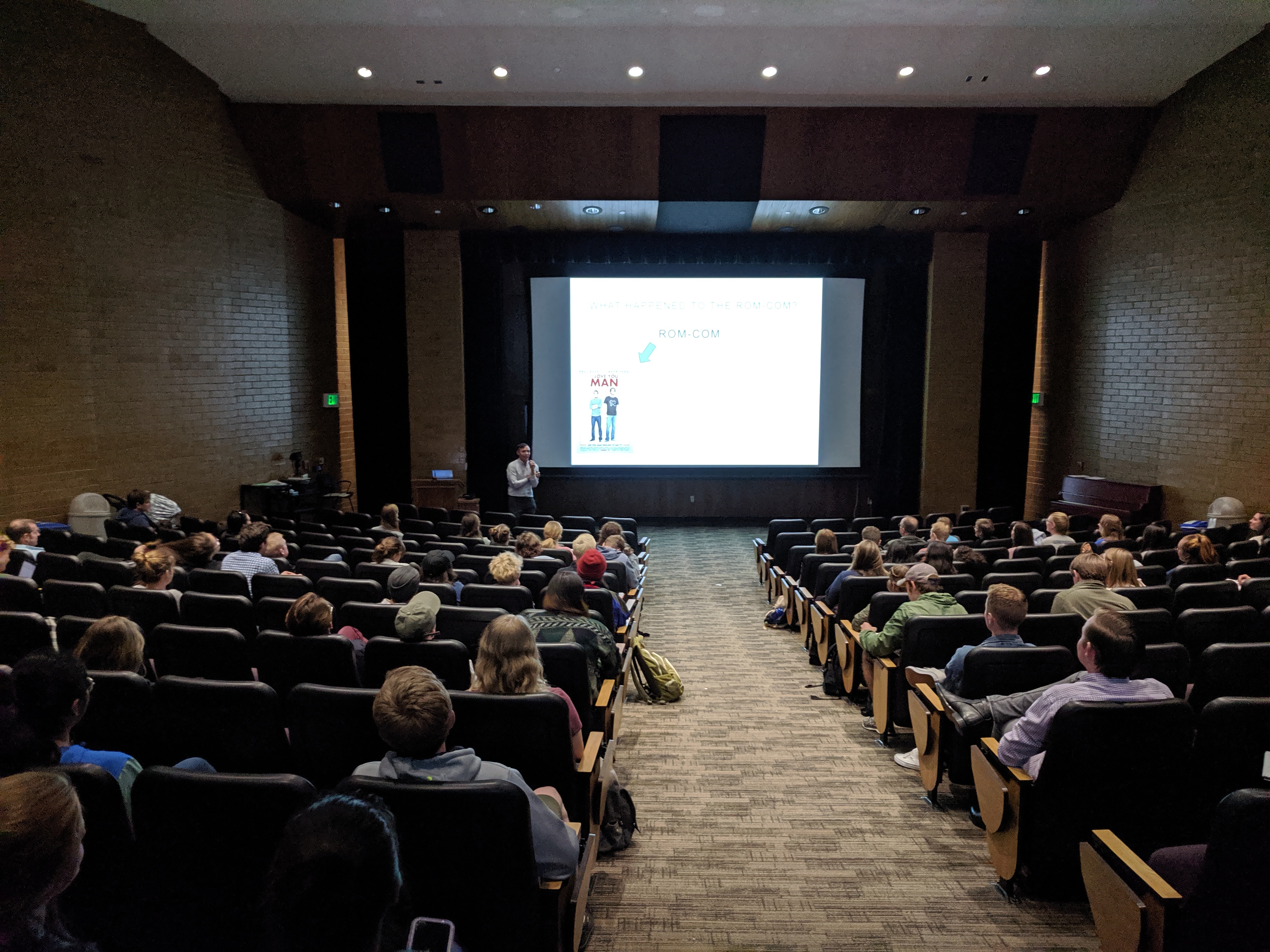
“Is the Rom-Com dead?” Some hands warily raised while others remained still. Dr. Marc Yamada from the Department of Comparative Arts and Letters is currently serving as one of the co-directors of the International Cinema. One of the co-directors’ main responsibilities is to choose the films shown each semester. Yamada knows that the romantic-comedy Crazy Rich Asians (2018) is not the typical fare here, so the goal of his lecture was to provide a context for why this film belongs at the International Cinema.
Romantic-comedies, while not in the mainstream film industry as strongly anymore, are very much still alive. Many minority cinemas have adopted the rom-com formula to tell new stories about their specific group dynamics. In recent years, there has been a huge influx of rom-com’s in American Black cinema, LGBTQ cinema, and—most recently—Asian cinema. What was typically the love triangle between one woman and her two male suitors has now become a framework for discussing issues of class, race, gender, and sexuality. Crazy Rich Asians, as you may suspect, is primarily about class and race, but gender finds its way in as well.
The film is concerned, Dr. Yamada argued, with the question, “What does it mean to be Chinese?” Is the answer determined by ethnography? Geography? Linguistics? Citizenship? Crazy Rich Asians invites viewers who previously thought of all Chinese people as homogenous, to see the differences in Chinese communities around the world. The film follows Rachel Chu (Constance Wu) who acts as the outsider’s insider. She’s Chinese-American and fits the stereotype, according to her, as she’s “an economics professor with lactose intolerance.” Rachel is invited to accompany her Chinese-Singaporean boyfriend to a huge wedding event between two elite families in Singapore. She naively believes that she’ll get along with everyone because “she is Chinese.” It comes as a surprise to Rachel to find that not all Chinese communities are the same.
Dr. Yamada proposed that the rom-com formula is used to explore these differing identities. Instead of the regular meet-cute we see in older rom-coms, the romantic leads have already met and are seriously dating when the film begins. Additionally, the love triangle is seemingly done away with as there are no other men pursuing Rachel, but Dr. Yamada argued that the love triangle, has not been trashed, it has been transformed. The triangle is not one of romantic love between three individuals but of maternal care and identity between Rachel, her mother, a Chinese-American, working-class immigrant and her boyfriend’s mother, the powerful, traditional, and wealthy matriarch (played by the unparalleled Michelle Yeoh). These three women’s interactions in the film directly relate to the key question Dr. Yamada asked, “What does it mean to be Chinese?”
As suggested earlier, the film does not only use the rom-com formula to explore race and class but gender as well. As opposed to the older Asian male stereotypes of “Evil Other,” “Wise Master,” and “Side-kick,” and the newer stereotype of soft masculinity (as seen heavily in the pop music from Northeastern Asia), the film is very interested in a more masculine, Asian male. The men in the film receive affection not only narratively from their female partners, but cinematically from the camera.
Dr. Yamada concluded by asking us to be wary of the stereotypes put forth in this film. Not all Asians are as wealthy and hyper-materialistic as depicted in this small slice. Rampant maid exploitation is the sweat that makes the “Crazy Rich Asians’” lifestyle possible. To combat this, the International Cinema is also showing a companion piece this week of Koreeda Hirokazu’s newest, Palme d’Or winning film Shoplifters (2018), that shows the flip side of this wealth disparity.
